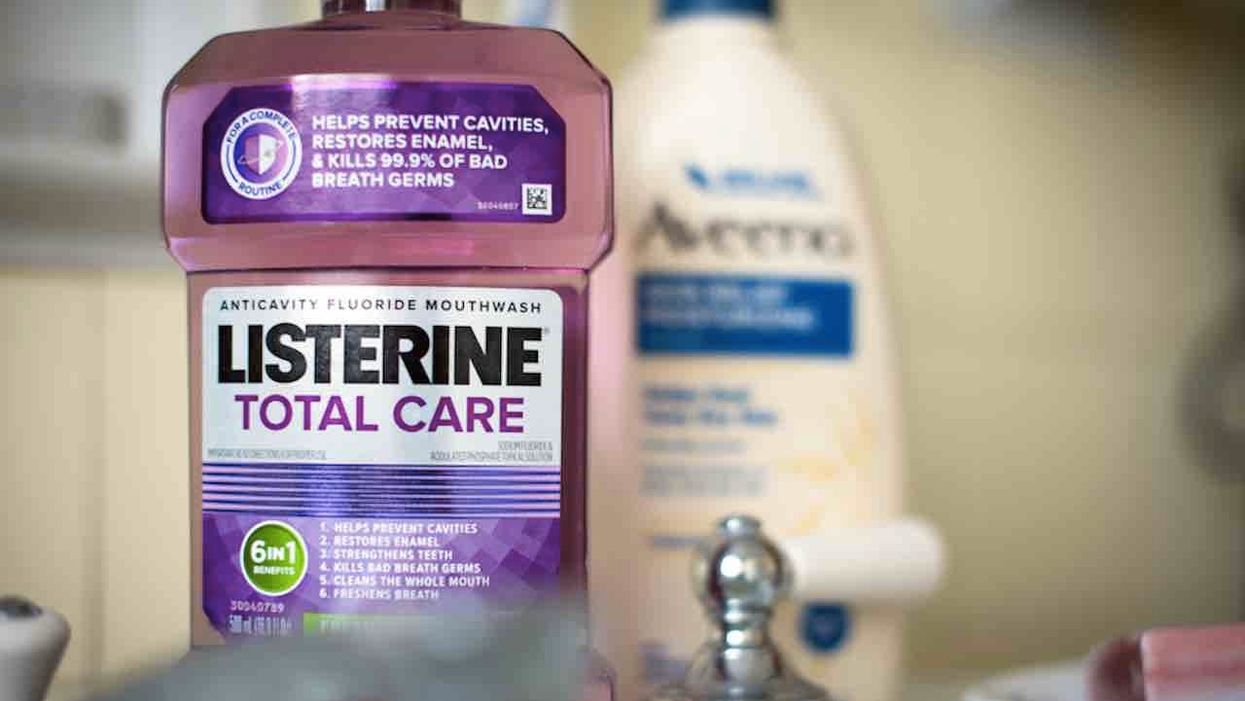
Photographer: Tiffany Hagler-Geard/Bloomberg via Getty Images

'There is no evidence that using mouthwash will protect you from infection with the new coronavirus,' the WHO says
Researchers say mouthwash may "disrupt" transmission of the coronavirus and that clinical evaluations should commence, according to a manuscript accepted by academic journal Function.
But the World Health Organization indicates "there is no evidence that using mouthwash will protect you from infection with the new coronavirus."
The researchers note that "emerging studies increasingly demonstrate the importance of the throat and salivary glands as sites of virus replication and transmission in early COVID-19 disease," adding that the virus' cell is covered by an outer membrane that's "highly sensitive to agents that disrupt" it.
"There has been no discussion about the potential role of oral rinsing in preventing transmission," the authors continue. "Here, we review known mechanisms of viral lipid membrane disruption by widely available dental mouthwash components that include ethanol, chlorhexidine, cetylpyridinium chloride, hydrogen peroxide and povidone-iodine. We also assess existing formulations for their potential ability to disrupt the SARS-CoV-2 lipid envelope, based on their concentrations of these agents, and conclude that several deserve clinical evaluation."
They conclude that "already published research on other enveloped viruses, including coronaviruses, directly support the idea that oral rinsing should be considered as a potential way to reduce transmission of SARS-CoV-2" and that it's "an under-researched area of major clinical need."
Function — a publication of the American Physiological Society — says it "aims to be a highly selective journal, publishing major advances that extend physiological understanding of biological function and the changes associated with disease states."
The WHO doesn't buy notions that mouthwash helps stave off the coronavirus, as a Facebook graphic from February illustrates:
A few things to keep in mind with respect to the WHO: